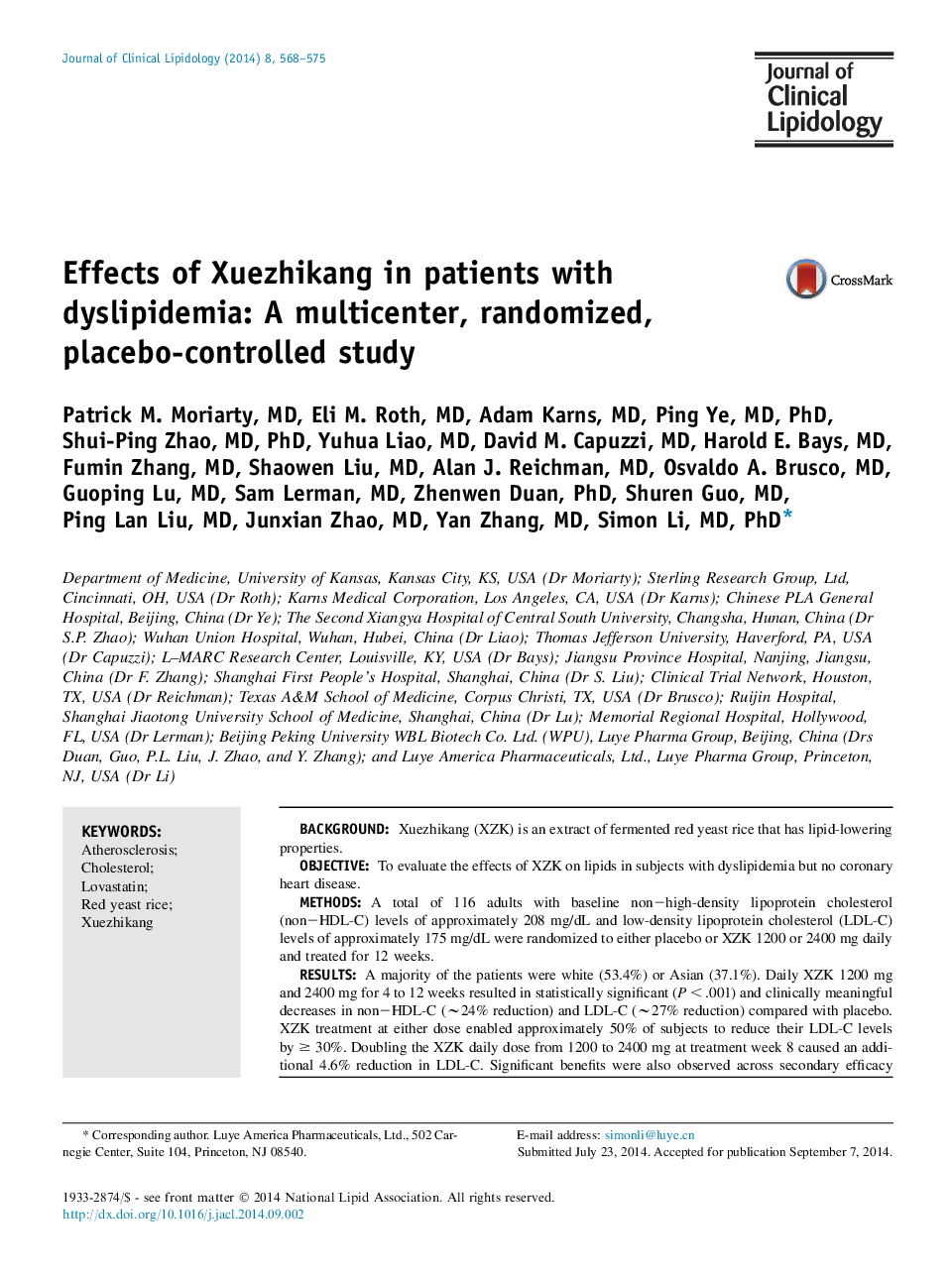| کد مقاله | کد نشریه | سال انتشار | مقاله انگلیسی | نسخه تمام متن |
|---|---|---|---|---|
| 5985831 | 1178782 | 2014 | 8 صفحه PDF | دانلود رایگان |

âºXuezhikang (XZK) is an extract of red yeast rice with lipid-lowering effects.âºDaily XZK 1200 to 2400 mg for 12 weeks decreased nonâHDL-C by approximately 24% and LDL-C by approximately 27%.âºXZK treatment at either dose enabled approximately 50% of patients to achieve a â¥30% decrease in LDL-C.âºXuezhikang was well tolerated. No subject developed myopathy.âºEfficacy did not differ in American vs Chinese subjects.
BackgroundXuezhikang (XZK) is an extract of fermented red yeast rice that has lipid-lowering properties.ObjectiveTo evaluate the effects of XZK on lipids in subjects with dyslipidemia but no coronary heart disease.MethodsA total of 116 adults with baseline nonâhigh-density lipoprotein cholesterol (nonâHDL-C) levels of approximately 208 mg/dL and low-density lipoprotein cholesterol (LDL-C) levels of approximately 175 mg/dL were randomized to either placebo or XZK 1200 or 2400 mg daily and treated for 12 weeks.ResultsA majority of the patients were white (53.4%) or Asian (37.1%). Daily XZK 1200 mg and 2400 mg for 4 to 12 weeks resulted in statistically significant (P < .001) and clinically meaningful decreases in nonâHDL-C (â¼24% reduction) and LDL-C (â¼27% reduction) compared with placebo. XZK treatment at either dose enabled approximately 50% of subjects to reduce their LDL-C levels by â¥Â 30%. Doubling the XZK daily dose from 1200 to 2400 mg at treatment week 8 caused an additional 4.6% reduction in LDL-C. Significant benefits were also observed across secondary efficacy variables, including total cholesterol (TC), apolipoprotein B (Apo B), triglycerides, HDL-C, the TC/HDL-C ratio, and the Apo B/Apo A-I ratio, at treatment week 8 or 12. XZK was safe and well tolerated. Safety and tolerability profiles were similar across treatment groups. Most adverse events were gastrointestinal. No subject experienced myopathy or markedly elevated liver transaminases or creatine kinase.ConclusionXuezhikang significantly reduced nonâHDL-C and LDL-C, and was well tolerated. Further, longer-term studies in more diverse patient populations are needed to corroborate these findings.
Journal: Journal of Clinical Lipidology - Volume 8, Issue 6, NovemberâDecember 2014, Pages 568-575